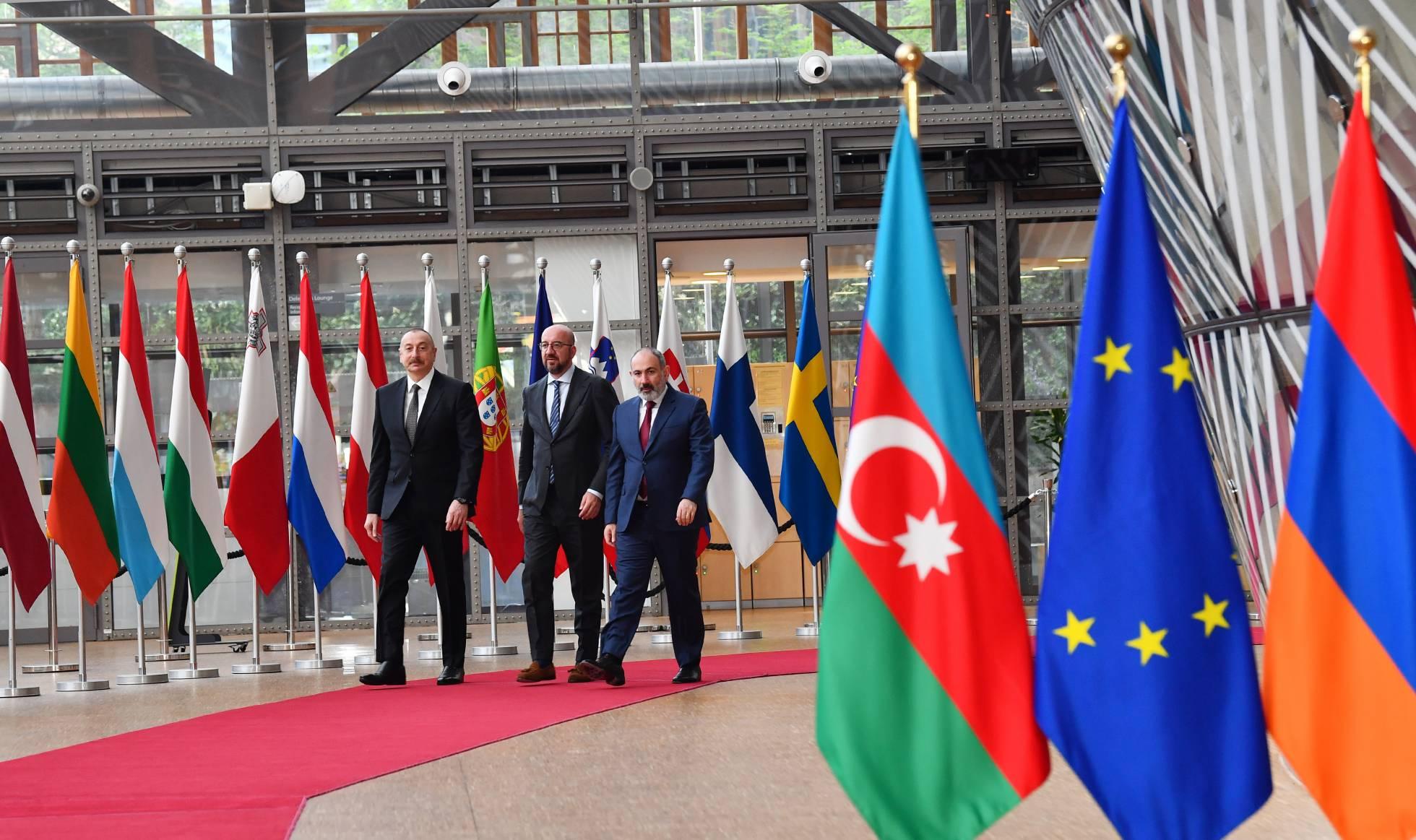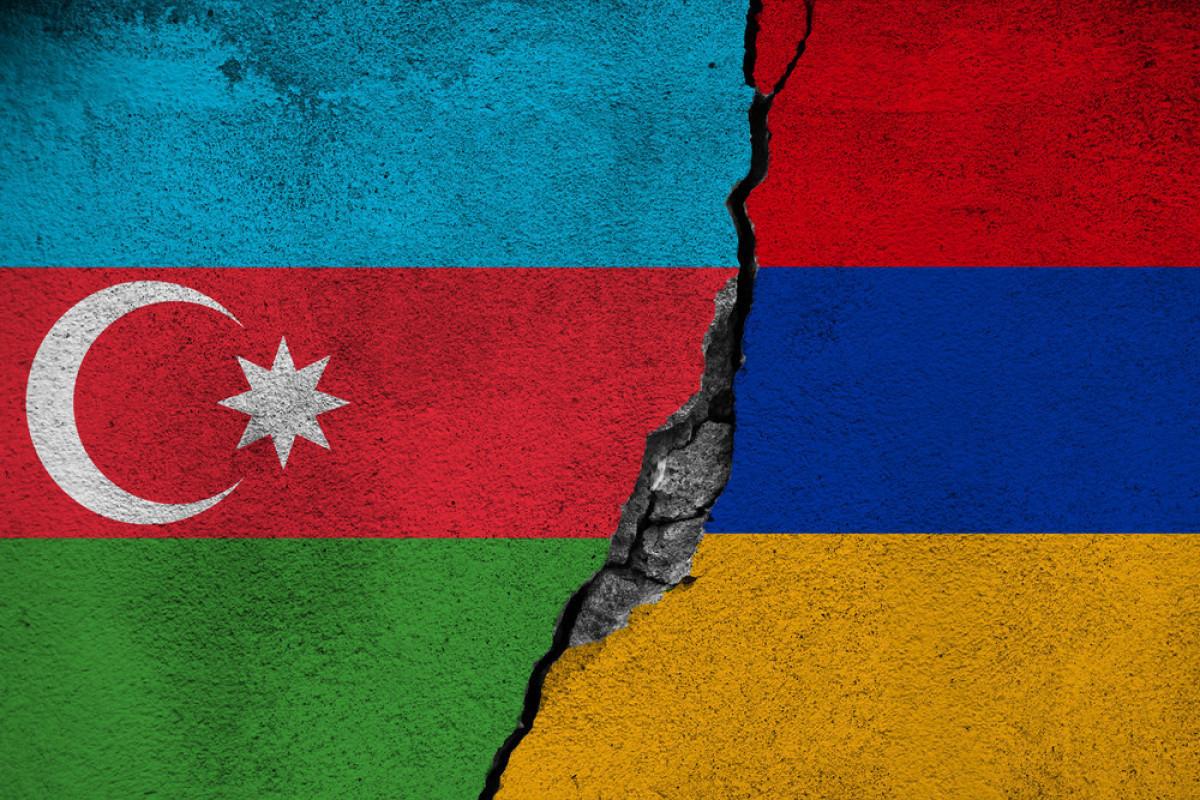Brussels-3: No status, no "people", no "Nagorno-Karabakh" Following trilateral summit's outcome
The day before, on May 22, the third regular talks of the leaders of Azerbaijan, the Council of the European Union and Armenia took place in Brussels. [Azerbaijani President Ilham] Aliyev, [EU Council President Charles] Michel and [Armenian Prime Minister Nikol] Pashinyan continued discussing the issues of mutual interest identified at previous meetings and playing an important role in ensuring stability in the entire South Caucasus region. As before, the main agenda of the talks is the normalization of relations between Baku and Yerevan.
Even before the meeting, some experts and journalists expressed cautious pessimism about its effectiveness. As we remember, at the talks held in Brussels on April 6, Pashinyan confirmed his agreement with the five principles of the future peace treaty proposed by Azerbaijan, as well as with the creation of a bilateral commission that will deal with the delimitation of the Azerbaijani-Armenian border. However, after Pashinyan's trip to Moscow and the reception by President Putin, as well as against the background of the incessant protests of the irreconcilable opposition (which are so convenient to hide behind), Armenia began to delay the implementation of the agreements reached in Brussels. Moreover, Yerevan has put forward its six principles for the settlement of relations, and the Armenian Armed Forces have again carried out a number of armed provocations in the border area.
Against the background of the already familiar Armenian inconsistency, it seemed that there was not much sense for another meeting. After all, on April 23, during a telephone conversation between Aliyev and Michel, the Azerbaijani leader informed his interlocutor that following the April 6 meeting in Brussels, Azerbaijan had already determined the composition of the National Commission for the Delimitation and Demarcation of the Armenian-Azerbaijani border and the delegation for the preparation of a peace agreement between the two countries, and it is ready to negotiate. Which, as we already know, Armenia did not do. At least, the matter has not moved beyond words. However, it was important for Azerbaijan to understand how the peace agenda put forward and promoted by it would move forward. And whether it will be at all. That is why official Baku has agreed to this meeting.

However, Michel's statement on the results replaced the cautious pessimism that had previously prevailed with an equally cautious, but already optimistic tone. According to him, "the discussion was frank and productive". The parties had achieved significant results, such as the first joint meeting of the Border Commissions scheduled for the coming days, during which all issues related to border delimitation will be discussed, contributing to the situation's stabilisation.
In addition, an agreement was reached on the need to proceed with unblocking transport communications.
According to Michel, the leaders agreed to continue discussing the future peace treaty regulating Armenian-Azerbaijani interstate relations. Groups led by foreign ministers will continue this process in the coming weeks.
And here lies one, at first glance, inconspicuous, but extremely important moment for Azerbaijan in the context of discussing the future peace treaty. According to the president of the Council of the European Union, he stressed to both leaders that "it is necessary to consider the issue of the rights and security of the ethnic Armenian population in Karabakh". And again - not a single mention of "Nagorno-Karabakh" and the "people of Artsakh or Nagorno-Karabakh" invented by the Armenian side. "Ethnic Armenian population" means the definition by the Old World of the Armenians of the Karabakh region of Azerbaijan as one of the ethnic groups in our state. Not a word about the status and the "people". Good wording, once again confirming the correctness of Baku's position.

As we can see, the assessment of the relatively cautious optimism from the meeting held on the eve of the meeting in Brussels turned out to be justified. However, again, as after the meeting on April 6, we consider Armenia's further actions no less important than the wording. That is, will Armenia finally and consistently implement the agreements reached, or will it continue to delay the process under the guise of another challenge to Pashinyan on the carpet in the Kremlin or threats to the opposition? The very near future will show all this and I would like to hope that by July-August, when the fourth meeting in this format will take place, Pashinyan's practical baggage will be heavier than his unfounded consent to normalization.








